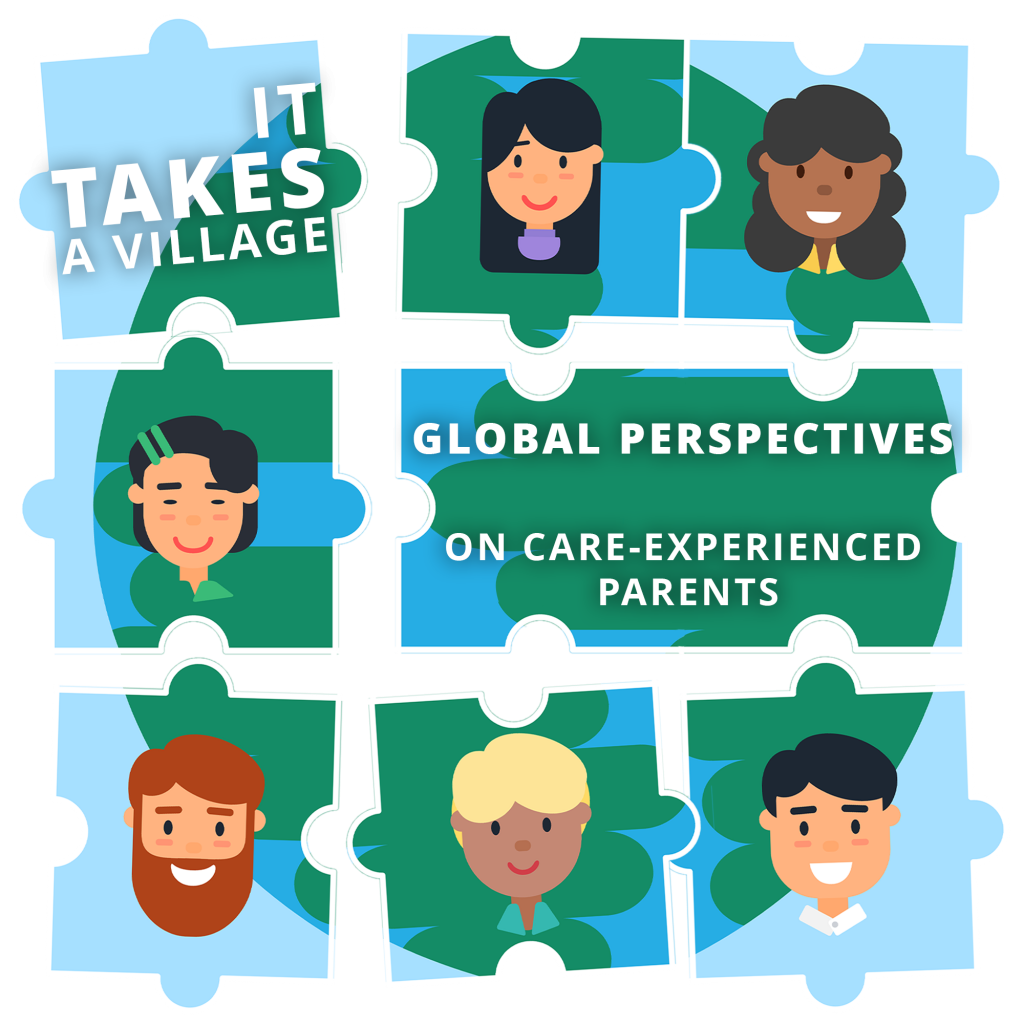I am from London. At 17 I was ‘looked after’ in an arrangement approved by the state, outside my immediate or extended family home.
I had my first child at 18.
After my first antenatal appointment at the hospital it came to light that a midwife was not convinced with my capacity to cope with pregnancy. Hence, this midwife brought it upon herself to refer me to social services without my knowledge or consent to do so. I was quite shocked to receive a call to find out I had been referred to social services by a midwife and the only reason given on the referral sheet was that “I was 17”. This was my introduction to ‘being in care’ and in effect a Care Experienced Parent.
Social services required that I complied with having regular meetings with the social worker assigned to me and my ‘unborn child’ each week. These meetings consisted of carrying out assessments along with general catch ups. Social services didn’t provide a set period to how long their intervention would persist, but whenever I enquired regarding their timeframe the social worker assigned to me discouraged me from resisting the intervention of social services. However, due to my busy life routine of work, college and hospital appointments it became challenging to continue to agree to meet the level of engagement social services expected of me. Therefore, after two months of complying with social services I decided to hire a lawyer who agreed to work for me to stop social services continuing to intervene without warrant in the life of my unborn child and I. I had to hire a lawyer because when I attempted to negotiate the terms that social services had expected me to engage with them on, they were not responsive to me. However, as soon as I involved a lawyer, they were responsive to my lawyer. Thus, after five months of back and forth with my lawyer and social services I was involved in a safeguarding meeting. This meeting consisted of a social worker for me, two social workers for my unborn child, a keyworker, an advocate and a housing department officer. After consideration from all these professionals in this meeting social services finally agreed to stop their intervention; at this point I was 4 weeks till the due date of my unborn child.
What helped me throughout this period was my support network; my immediate family, my Christian family, my faith and my education. The hypothetical village I had and the system’s I decided to focus on was the source of encouragement that led me to begin my academic studies at university when I was 18 years old; at this time, I had a 6-week-old baby, three years after I graduated with a Criminology Youth Justice degree. Therefore, after completing my further education I was ignited with a passion to run and develop my own business solutions to empower and improve the conditions of children and teenage parents.
Throughout my pregnancy I was suffering with something I can now identify as prenatal depression. I think because of all the mental strain social services put me under along with my day-to-day routine, it was really hard to focus on this new life that I was bringing into this world. I didn’t tell anyone how I was feeling mentally because I was so scared to think of what would happen to my unborn child if I did. So, throughout my pregnancy I just kept my thoughts to myself. However, by the nine-month period I was displaying physical health symptoms heavily related to stress. As a result, I had an early unexpected emergency c-section and after the safe delivery of my baby girl; I later woke up in intensive care. My daughter and I remained in hospital as an inpatient for the 8 weeks thereafter. Regrettably, the whole experience of pregnancy along with social services, lawyers, college and work along with my traumatic birth made it impossible to naturally connect with my new born. And despite my efforts my depressive state only grew worse. Although I was so excited to finally leave the hospital, when I brought my daughter home I was running on autopilot, you know? Feed the baby, change the baby, baby cries, do this, pat the baby, and as long as I was doing that I felt like I was doing OK.
The experiences that young parents face with their mental health as I have illustrated above is very specific to the journey of a young mum 25 and under the age of in the UK. Consequently, without tailored support and the priority put on government to reform certain policies for teenage parents in the UK; first time motherhood is exceptionally difficult on the mental health of care-experienced parents.
Recently, I had the privilege of supporting care-experienced parents for 18 months, as part Barnardo’s Care Journeys – Care Experienced Parent’s Unite – a peer research project 2021-22. This project was personal to me due to my experiences as a CEP myself. More details about the work can be found here [link to resources hub]. As a founder of a small business, I work independently as a Young Parent Consultant. As a consultant I offer my services as a public speaker, researcher and content writer mainly on subjects related to parents under 25 years old. I know first-hand about being identified as at risk thus, what Barnardo’s is doing in this field to help bring about change is incredibly important.
I want social workers to put parents’ priorities first in their assessment plans and further meetings. I do not believe social services should intrude into a teen parent’s life without reason. I believe social workers should be helping teen parents become self-sufficient not solely judging their capability as teen mums and dads.

This Blog is part of our ExChange conference, “It Takes a Village: Global perspectives on care-experienced parents”
To find more resources on this topic check out the conferences below

